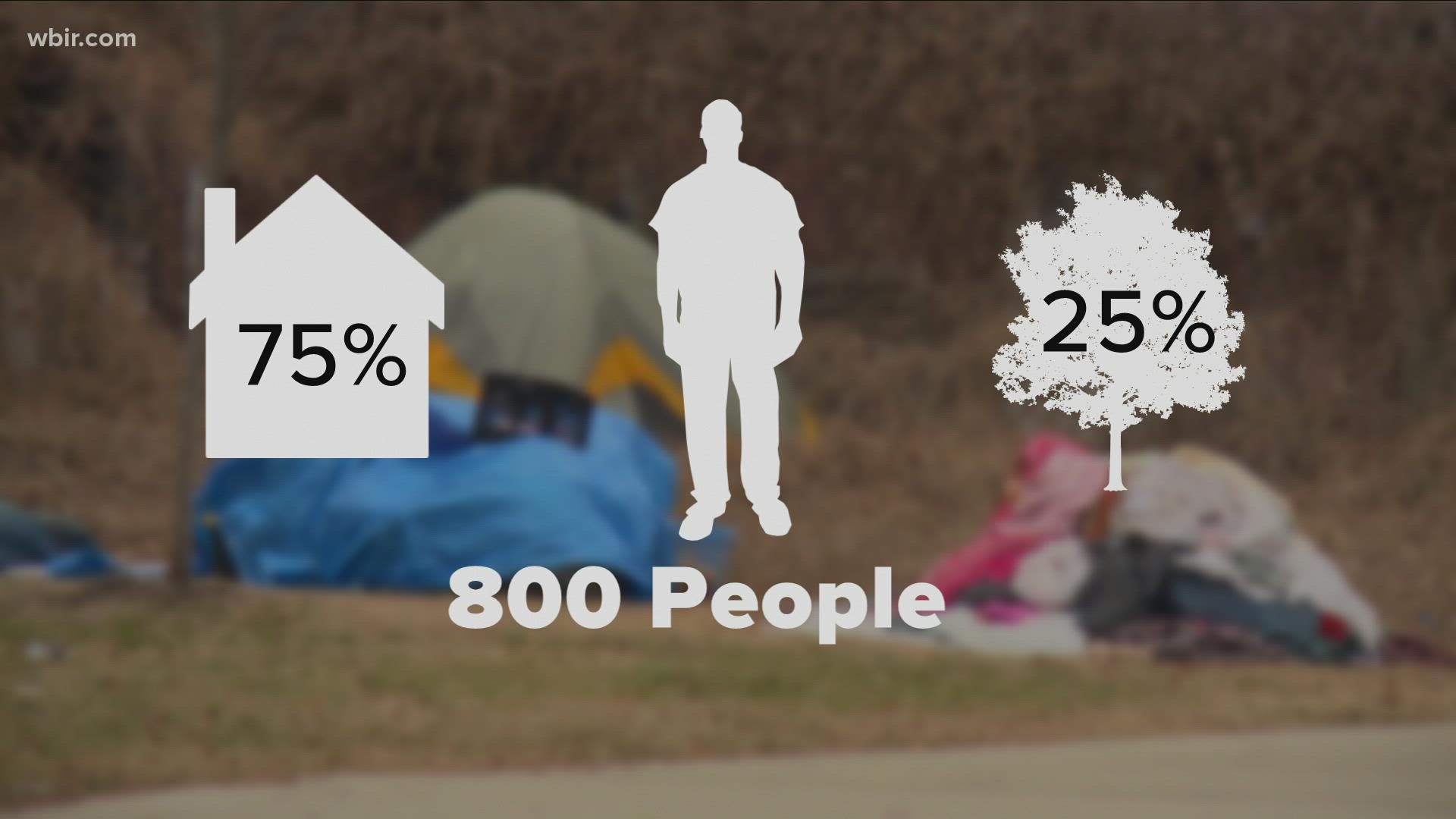KNOXVILLE, Tenn. — Some business owners along Broadway in Knoxville are frustrated with the lack of progress in addressing and alleviating homelessness.
"I am concerned for my staff walking to their cars at night," said Geoff Yearack.
Yearack is the CEO of RCN Technologies. The telecommunications provider's main office is off Broadway one block northwest of Knox Area Rescue Ministries (KARM).
He said people frequently walk down Tyson Street on their way to the cemetery, and feels it has created a bad situation for his business.
"We have to keep the doors locked because some of the people are very aggressive and come in demanding to use the services and so fourth." Yearack said. "That's creating an issue where I'm having a hard time getting employees to want to work down there."
In addition, in areas where people congregate, debris is often left behind.
"I passed a handful of used syringes, empty vials, human feces on the ground, and then food that somehow the rodents had managed to get to," KARM CEO Burt Rosen said. "How long is this going to continue to go on?"
According to Knoxville leaders, there are about 800 people in the city who are experiencing homelessness.
About 75% of those people, nearly 600, are considered "sheltered." This means they have somewhere to stay, whether couch-surfing at friends' houses or in a car.
The other 25%, roughly 200 people, are chronically homeless. This means they live primarily on the street or in community camps.
In the past year, Knoxville spent over $5 million to address the problem. Nearly $1 million of that fund came from local tax dollars.
"It's very disjointed, I feel that the charities are doing their work," Yearack said, "And we don't believe in what they're doing, because we don't see a change."
KARM proposed a plan to provide short-term storage units for people experiencing homelessness so they can have a place to safely store their belongings, which it said can be a major barrier to finding a job.
Research by KARM found that for many people facing homelessness, the risk of leaving their personal belongings is extremely high.
Rosen explained that these possessions are invaluable and impart a sense of humanity for those falling deeper into chronic homelessness. Many carry pictures of family, friends or possessions of high personal value to that person.
However, KARM said their collection of property can often be a hindrance to getting a job, because others would see it as unsightly.
"That's why we have seen an increase in carts being pushed around town," Rosen said.
Local business leaders were not quick to jump behind the plan for storage units.
Many were hesitant and preferred to help solve the problem through volunteered time and resources, instead of financial means.
"We're not getting involved, or we're not being asked to be involved," Yearack said, "But, we want to be involved."
This was the first discussion between KARM and business leaders in the community. However, it's clear the solution to homelessness won't be solved in one day.

